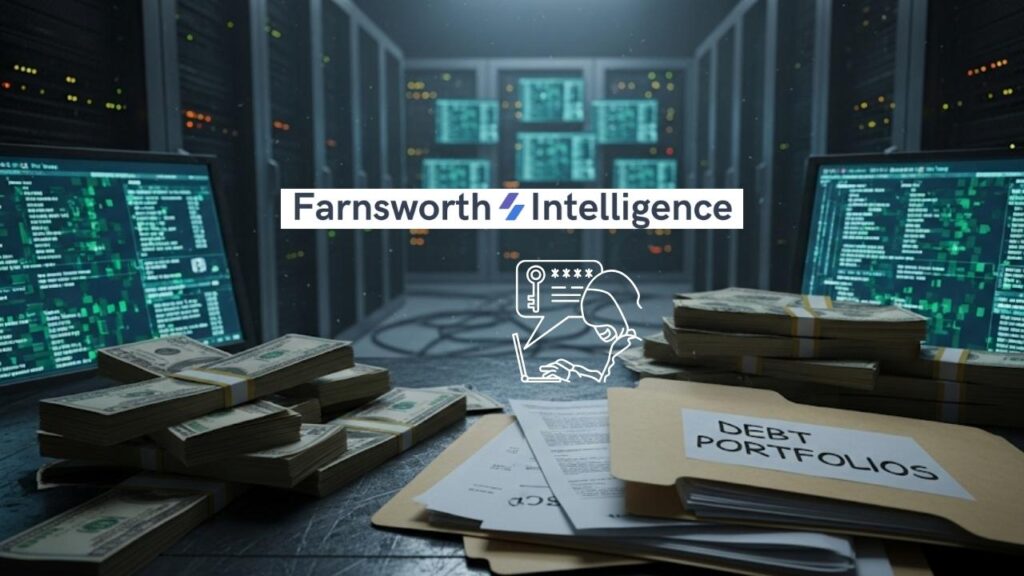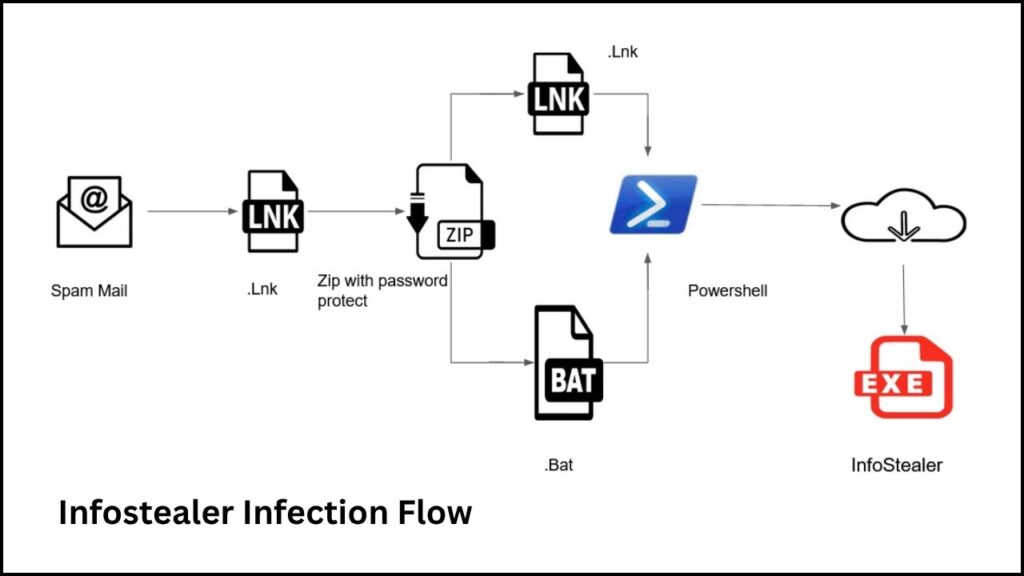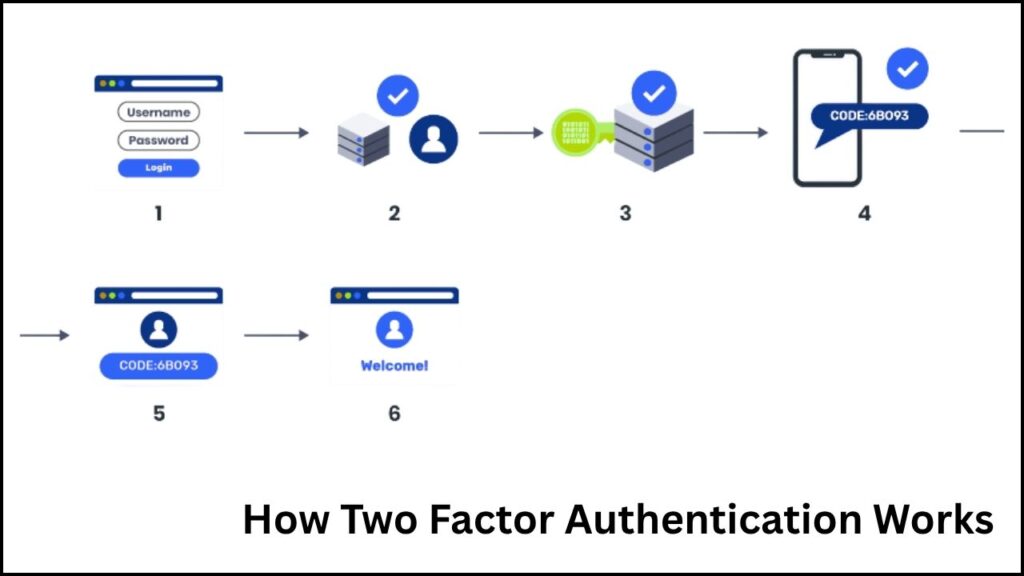Imagine waking up to discover that every private detail from your computer—your passwords, email address, the shopping sites you visit, and even your credit card information—is being sold to strangers, including companies trying to collect debts. This isn’t a spy movie plot. It’s happening right now, thanks to a U.S. startup called Farnsworth Intelligence. The company claims to have data from over 50 million hacked computers and makes it easy for anyone to buy this personal information for as little as $50.

This isn’t the shadowy world of dark web hackers selling data in secret. Farnsworth Intelligence presents itself as a legitimate business, openly offering stolen information to debt collectors, businesses, and even curious individuals. The data for sale isn’t just your name and address—it often includes your passwords, billing details, autofill information, and even lists of the websites you visit. Once your data is in their database, it could be accessed by anyone willing to pay, and used in ways you never imagined.
For anyone who cares about privacy, this is a major wake-up call. The reach of infostealer malware—the software that secretly collects this information—is huge. If your computer or smartphone has ever been infected, even just once, your personal details could be part of these massive, easy-to-buy databases. This article will help you understand how this is happening, who is most at risk, and—most importantly—what you can do to protect yourself and your family.
Startup Sells Hacked Data to Debt Collectors
| Key Points | Details |
|---|---|
| Startup Name | Farnsworth Intelligence |
| Type of Data Sold | Passwords, email/billing addresses, autofill info, browsing history, account lists |
| Number of Compromised Devices | Over 50 million |
| Price for Access | Starting at $50 |
| Main Buyers | Debt collectors, litigants, businesses, private individuals |
| Legal & Ethical Status | Highly questionable; experts say likely illegal and unethical |
| Protection Steps | Strong passwords, two-factor authentication, regular malware scans, credit monitoring |
| Official Source for Identity Theft | U.S. Federal Trade Commission (FTC) |
The sale of hacked personal data by companies like Farnsworth Intelligence is a serious wake-up call for everyone who uses the internet. No one is truly safe unless they take proactive steps to protect their digital life. While it’s easy to feel overwhelmed, the steps to stay safe are straightforward and, with a bit of practice, can become second nature.
This story isn’t just about one company—it’s about a much bigger problem with privacy, security, and the law in the digital age. By staying informed, taking action, and demanding better protections, we can all help make the internet a safer place for everyone.
How Does This Happen?
Let’s break down how this startling situation unfolds.
Infostealer Malware: The Digital Pickpocket
Infostealer malware is a type of software designed to sneak into your computer and collect personal details—like a digital pickpocket. Once it’s installed, often without you realizing, it records everything you do: the websites you visit, the accounts you log into, even things you type into forms. This information is then sent back to hackers, who package it up and sell it.

In the past, this stolen data usually ended up on secret websites in the “dark web.” But Farnsworth Intelligence is different—it’s selling this data in the open, making it much easier for more people to access.
What Exactly Is For Sale?
The personal data available isn’t just basic contact info. It can include:
- Passwords for your email, social media, and banking accounts
- Billing addresses and credit card information
- Email addresses
- Lists of websites you visit—including those you’d rather keep private
- Autofill data—like your home address saved for faster shopping
This is the kind of information that could be used to steal your identity, take over your accounts, or even blackmail you.
Who Buys This Data—And Why?
Farnsworth Intelligence advertises its database to a wide range of customers. Debt collectors are a major buyer—they use the data to track people down and pressure them to pay overdue bills. Other buyers include companies involved in lawsuits, businesses looking for customer information, and even nosy individuals willing to pay to spy on someone else’s private life.
Is This Legal? What Do Experts Say?
This is where things get complicated. Farnsworth Intelligence presents itself as a business, but the data it sells was stolen—obtained through criminal hacking and malware. Privacy experts and lawyers agree: profiting from stolen data is deeply unethical and may be illegal.
Courts have already ruled in some cases that stolen data can’t be used as evidence—for example, in divorce or debt collection cases—because it was obtained illegally. However, the legal landscape is still evolving, and not all cases are clear-cut.
Bottom line: Even though this data is for sale, buying or using it is risky. It’s not just wrong—it could put you on the wrong side of the law.
What Does This Mean for You?
If your computer or smartphone has ever been infected with malware (even if you didn’t notice), your personal information could already be for sale. Once your data is out there, it’s nearly impossible to get it back. This isn’t just about avoiding viruses—it’s about protecting your whole digital life.
How Can You Tell If You’re Affected?
Unfortunately, you might not know until it’s too late. Infostealer malware often works silently, and most people never notice anything unusual. But there are some warning signs:
- Unusual account activity—like logins you don’t recognize, or messages from friends saying you sent them something strange.
- Unexpected bills or charges on your credit card or bank statement.
- Messages from debt collectors about accounts you don’t recognize.
If you notice any of these, it’s time to take action.
How to Protect Yourself: A Step-by-Step Guide
You can’t always stop hackers, but you can make it much harder for them to hurt you. Here’s a straightforward, practical guide to staying safe:
1. Use Strong, Unique Passwords
- Never reuse passwords for different accounts.
- Use a password manager to keep track of your credentials securely.
- Change your passwords regularly, especially after news of big data breaches.
2. Turn On Two-Factor Authentication (2FA)

- 2FA adds an extra layer of security—even if someone gets your password, they need a second code (usually sent to your phone) to get in.
- Enable 2FA on every account that offers it, especially for email, banking, and social media.
3. Keep Your Software Updated
- Updates often include security patches that fix vulnerabilities hackers can exploit.
- Set your devices to update automatically so you don’t have to remember.
4. Install Reliable Security Software
- Use trusted antivirus and anti-malware programs and keep them updated.
- Scan your devices regularly for infections.
5. Be Careful What You Click On
- Don’t open attachments or click links in emails or messages from people you don’t know.
- Be skeptical of free software downloads—they might contain malware.
6. Monitor Your Accounts
- Check your bank and credit card statements regularly for suspicious charges.
- Consider credit monitoring services to alert you if someone tries to open an account in your name.
7. Educate Your Family and Friends
- Share these tips with everyone you know. The more people who practice good security habits, the safer we all are.
The Bigger Picture: Why Is This Happening?
The internet has made it easier than ever to collect, share, and sell data—sometimes without us knowing. Farnsworth Intelligence is part of a growing market for personal information, and not always in ways that protect people’s privacy. As more of our lives move online, protecting our privacy becomes both more important and more challenging.
This situation also highlights the lack of strong privacy laws in some countries, including the United States. While places like Europe have strict rules (like the General Data Protection Regulation, or GDPR), the US still lacks a comprehensive federal privacy law. That means companies sometimes operate in legal grey areas, selling data that would be strictly protected elsewhere.
Fake AI Platforms Are Targeting Web3 Developers: Protect Yourself from This Growing Malware Threat
WormGPT Is Back — And Its New AI Variants Are More Dangerous Than Ever
Mamona Ransomware: The Silent Offline Threat Everyone Should Take Seriously
FAQs About Startup Sells Hacked Data to Debt Collectors
Q: Is this really happening? Could my data be for sale?
A: Yes, it’s very real. If your device has been infected with infostealer malware, your personal information could be part of databases being sold by companies like Farnsworth Intelligence.
Q: How do I know if my computer is infected?
A: It can be hard to tell. Watch for unusual account activity, unexpected charges, or messages from debt collectors. Regularly scan your devices with reputable security software.
Q: Is buying or using this data legal?
A: Almost certainly not. Privacy experts and lawyers say using stolen data is both unethical and likely illegal.
Q: What can I do to protect myself?
A: Use strong, unique passwords, enable two-factor authentication, keep your software updated, install security software, and monitor your accounts for suspicious activity.
Q: Are there laws to protect me from this?
A: In the US, protections are limited. Other countries, like those in the European Union, have stricter privacy laws. It’s important to support stronger privacy protections locally.







